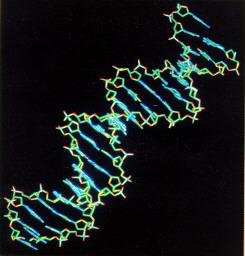Italian researchers have cracked the genetic code responsible for a rare life-threatening childhood disorder that causes bones to harden.
A team from the National Research Council (CNR) in Milan have identified a gene that causes osteopetrosis, also known as marble bone disease, a congenital condition that afflicts one in 100,000 children.
The disease leads to stunted growth and anemia as well as affecting nerve endings, which can result in deafness and blindness, and is frequently fatal.
Researchers Paolo Vezzoni and Anna Villa told the American Journal of Human Genetics that they have identified a gene responsible for a particular form of the disease which is caused by a lack of osteoclasts - the cells that soften and destroy old bone tissue to make way for the new.
''It's an important discovery because it will make early diagnosis in children possible and lead to the identification of carriers of the mutation,'' the scientists said.
Vezzoni and Villa said the breakthrough will also allow crucial diagnosis of the condition while babies are still in the womb.
''Bone marrow transplantation is the only cure currently available, but often it is not successful because it cannot modify the damage that has already been done since birth,'' Vezzoni explained.
But diagnosing osteopetrosis in the womb would mean transplants could be carried out ''immediately after birth, preventing the newborn baby from suffering from the first serious consequences of the illness''.
Vezzoni added that the discovery may one day pave the way to in-utero bone marrow transplants.









